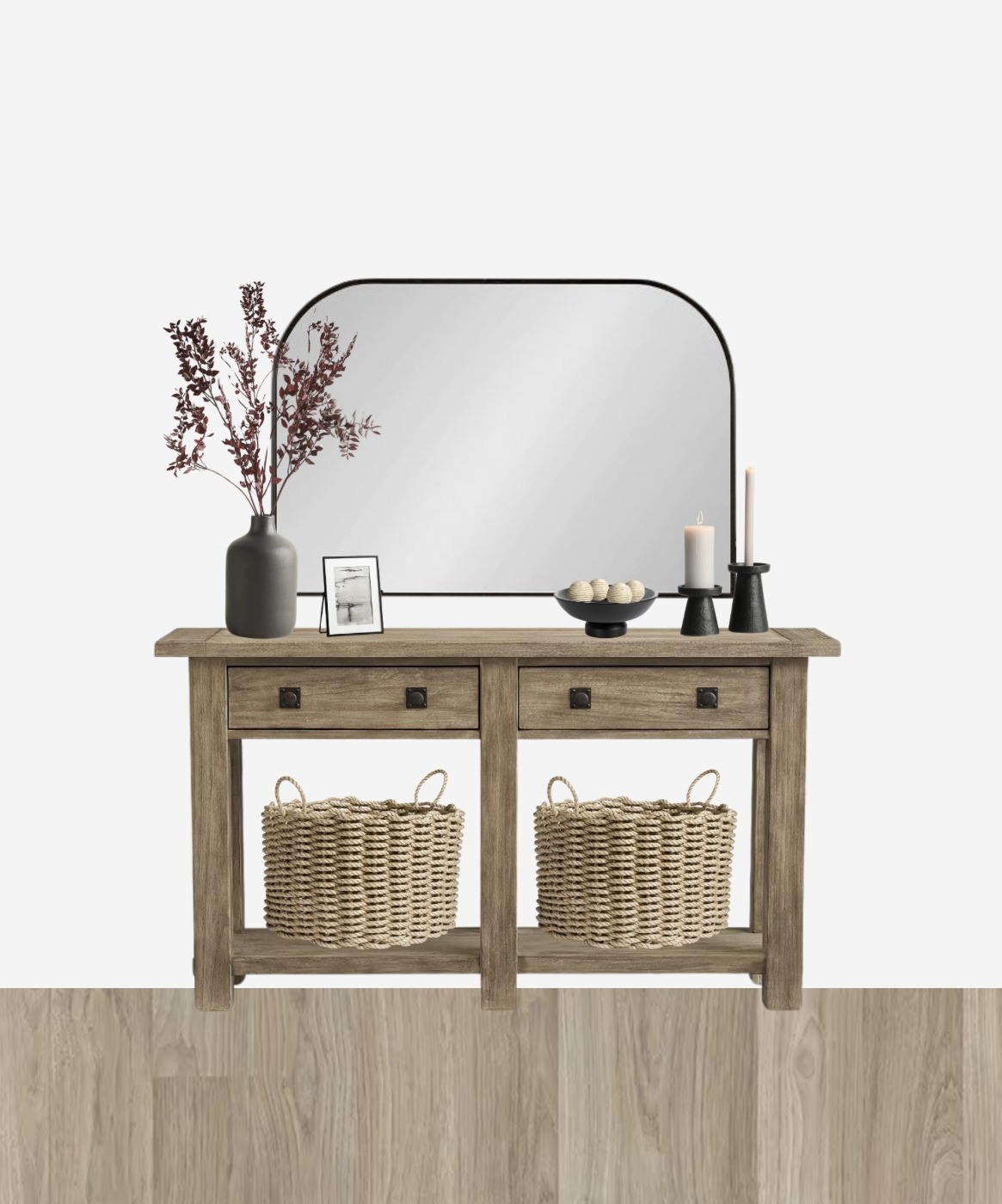You’ve heard of fast fashion, but you might be less familiar with its equally unsustainable sibling: fast homeware. Today, I’m dishing everything you need to know about this less than eco-friendly side of the home decor industry, as well as sharing ways to avoid contributing to it.
Related: Greenwashing Examples: How To Tell If A Home Decor Brand Is ACTUALLY Eco-Friendly
What Is Fast Homeware?
Like fast fashion, fast homeware gets its name from the constantly changing decor trends online and their extremely short cycles. There’s nothing inherently wrong with fast trend cycles, but the problem starts when it leads to overconsumption and increased waste production.
If you’re constantly buying new pieces based on what’s trending and throwing out your old ones when that trend dies, over time that has a major negative impact on the environment.
Not to mention the companies contributing to the emission of greenhouse gasses and waste of resources by constantly manufacturing new pieces to keep up with the trends.
How To Avoid Buying Fast Homeware: What To Do Instead
1: shop based on what you like, not what’s trendy
It’s okay to like trendy things, but it shouldn’t be the sole reason you buy something. You can avoid contributing to fast homeware trends by simply limiting your home decor shopping to pieces you genuinely like and will get use out of.
2. buy long lasting & durable pieces
When you take the time to source genuinely long-lasting decor, you’ll minimize your waste output, avoid over consumption of trends, and save money in the long run. It’s a win-win for both your wallet and the environment!
Related: 5 Ways To Create A Hygge Home Of Peace & Contentment
3. only buy what you need and/or love
Similar to point number one, an effective way to avoid overconsumption is to only buy homeware you actually need or really love. Opt for a minimalist approach when shopping, and avoid impulse buying trendy pieces you won’t get much use out of.
4: buy ethically-made pieces
One simple way to avoid fast homeware shopping is to buy from businesses who use ethical production techniques to make their products. This means looking for companies that are eco-friendly, but also treat their employees kindly and fairly.
How do you identify such companies? Well, the internet isn’t all bad. Use it to research a company’s sustainability efforts through customer reviews, journalists, bloggers, and mainstream media.
5. keep an eye out for greenwashing
When you’re researching sustainability efforts of home decor brands, make sure they’re being genuine and not greenwashing – essentially not being truthful about their green practices, and using their supposed practices just to make their company look good.
Some common ways to tell if a company is greenwashing is if they’re making claims about the sustainability of their products without elaborating or backing up said claims, providing false facts that can easily be disproved, using vague language and lots of sustainability buzzwords, using non-recyclable packaging, among others.
6. shop second-hand
Everyone knows shopping second-hand is good for the planet, but here’s why for anyone who may need a refresher. Simply put, when you buy a second-hand piece, you’re making use of something that would have otherwise ended up in a landfill. You’re also prolonging its lifespan and ensuring the materials used to make it don’t go to waste.
Related: Japandi Coffee Table Styling Ideas For A Zen Living Room
7. buy made to order pieces
Made to order pieces are ones that don’t get made until a customer actually places an order for it. This is fantastic because it minimizes overuse of energy and materials to produce products that haven’t actually been sold yet.
You can find a lot of made to order home decor from individual artists and small businesses. Etsy is a great place to find such sellers!
8. support small businesses
Of course, don’t forget to support small businesses in your efforts to avoid fast homeware. Smaller businesses use less energy and less material to make their products, limiting any potential negative environmental impacts caused by their production process.
They’re also more likely to buy and deliver locally, reducing their carbon footprint and minimizing pollution.
9. buy recyclable products or ones that use recyclable packaging
Pretty self explanatory. When home decor shopping, be on the lookout for products made of sustainable materials or ones that come in sustainable packaging to limit any harmful effects on the planet. Biodegradable materials are a plus, as long as they don’t emit toxins into the environment during the process.
Related: What Makes Bamboo Decor Sustainable? (And Why You Should Use It In Your Home)
Thanks for reading this article about fast homeware! If you liked it, give it a share (another great way to spread awareness about fast homeware) or save it to Pinterest so you can come back to it later.
This article about fast homeware affiliate links, which means that if you make a purchase through a link on this page, we earn a small commission at no extra cost to you.




